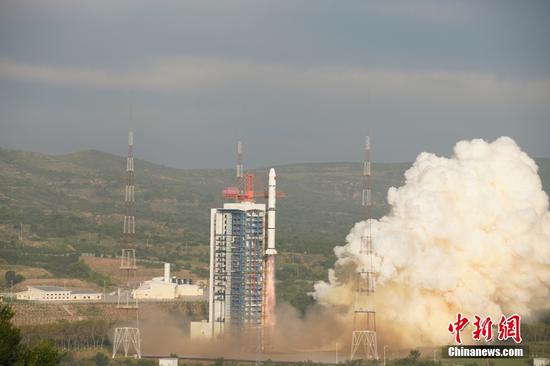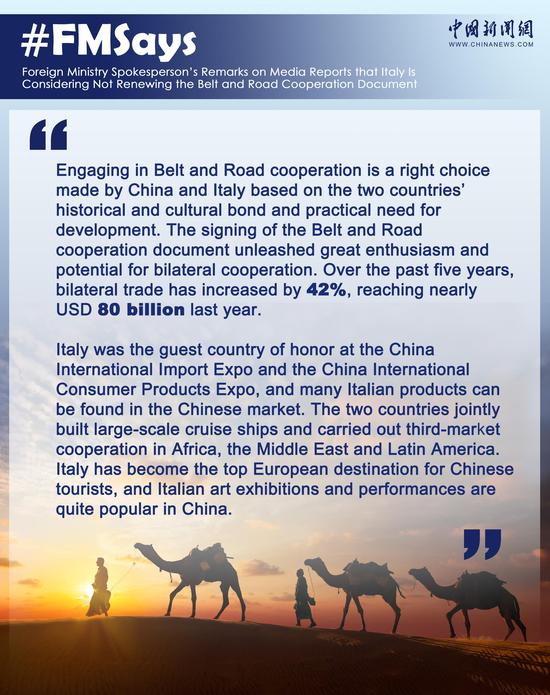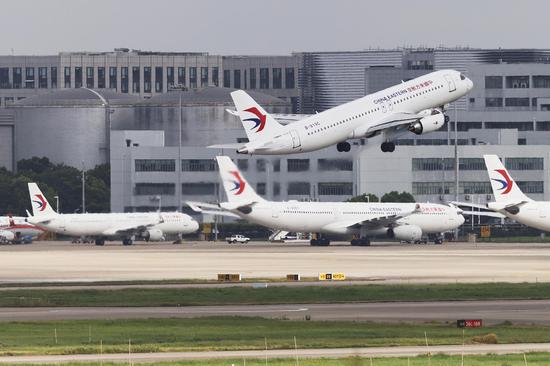Trade: Economic ties deeply intertwined
The sharp decline in the value of goods imported by the United States from China — by 25 percent in the first half of this year — is not only due to a drop in consumer spending, but is also a result of "indirect trade" between the two countries, suggesting that their economic links are "enduring" even amid tensions, analysts said.
U.S. goods imports from China were valued at $203 billion during the first six months of 2023, a decline from $271 billion in the same period last year, while two-way goods trade fell by nearly 20 percent, according to data released by the U.S. Commerce Department on Tuesday.
Meanwhile, the latest Chinese Customs data showed that China exported 1.95 trillion yuan ($270 billion) of goods to the U.S. in the first seven months, down 13 percent year-on-year. Overall China-U.S. trade declined 9.6 percent year-on-year to 2.46 trillion yuan during the period.
"I think the decline is mainly due to a slowdown in U.S. household purchases of the various goods produced in China," said Gary Hufbauer, a senior fellow and trade expert at the Peterson Institute for International Economics in Washington.
The top U.S. imports from China so far this year included computers, electronic products, electrical equipment, appliances, components, machinery and chemicals, according to the International Trade Administration.
Hufbauer said the impact of the massive tariffs, imposed on roughly two-thirds of imported Chinese goods during the administration of former U.S. president Donald Trump, was "pretty well" reflected in U.S. imports from China by 2022. Further declines in 2023 mainly reflect changes in household purchasing patterns.
Overall U.S. imports of goods slumped by 1.2 percent to $253.3 billion in June, the lowest level since October 2021, according to official statistics.
"Weakening consumer demand for goods and retreating inventory growth by businesses have softened imports this year, while exports continue to trend downward as the global economic backdrop softens," Matthew Martin, a U.S. economist at Oxford Economics, told Reuters.
Consumer spending aside, Hufbauer said that going forward, "redirected supply chains" will play a larger role in actual U.S. imports from China.
"China is shipping more intermediate goods to countries like Mexico, Malaysia and Vietnam, and then the final products are coming to the U.S.," Hufbauer told China Daily. "I think we will see more of these redirected supply chains in the future."
The drastic drop in U.S. imports of Chinese goods has made headlines in the global media, but overseas China watchers were quick to point out that it does not prove that attempts to decouple will work out.
In an article, "How America is failing to break up with China", published on Tuesday, The Economist noted that China-U.S. economic ties are "more profound than they appear at first glance".
It said the attempt to "de-risk" trade with China is the cornerstone of the White House's foreign policy, but that instead of being slashed, trade links between the U.S. and China are enduring — just in more tangled forms.
"Given that most countries are desperate for the investment and employment that trade brings, the U.S. has been unable to convince its allies to reduce China's role in their supply chains," The Economist authors wrote.
"Many are content to play both sides — receiving Chinese investment and intermediate goods, and exporting finished products to America and the rest of the West," they wrote.
S.L. Kanthan, a geopolitical analyst based in Bangalore, India, wrote on X, formerly known as Twitter, on Tuesday: "Here's why the U.S. is importing less from China: The U.S. buys Chinese goods through other countries! China's exports to intermediary countries like Mexico, Vietnam, India, and Malaysia skyrocketed after 2018… when the U.S. trade war began. So, 'decoupling' is just recoupling."
His sentiments were echoed by Chinese trade experts.
Wang Youxin, a senior researcher at the Bank of China, attributed the sharp drop in U.S. imports from China during the first half of the year mainly to two factors: the softening U.S. demand, especially that for goods, and the U.S. pursuit of nearshore and friendly-shore outsourcing, which means getting work done or services performed in nearby countries or traditional alliances.
He also said that economic ties between China and the U.S. will remain deeply intertwined, although direct trade between the two countries may become weaker due to the shift of productions to outside China amid the ongoing global supply chain reconstruction underpinned by such nearshore and friendly-shore outsourcing practices and additional U.S. tariffs on Chinese goods.
"The U.S. imports have shown an overall downtrend due to weakening demand, especially that from countries including China and Southeast Asian nations, despite an increase in imports from the European Union and its neighbors," Wang said.
"Yet 'decoupling' between China and the U.S. is not possible, because other U.S. trade partners like Mexico and Southeast Asian countries need intermediate goods imports from China to produce goods the U.S. imports," he said.
According to Gao Lingyun, director of the international investment division at the Chinese Academy of Social Sciences' Institute of World Economics and Politics, a strong dollar and relatively high comparison base also contributed to the decline in U.S. import value from China during the first half of this year, apart from factors like weaker U.S. demand for Chinese products.
U.S. direct imports from China may decline, but its imports from elsewhere will contain value added from Chinese intermediate products, he said, adding that "decoupling" is not feasible, even though in some areas direct trade ties will become frayed.


















































 京公网安备 11010202009201号
京公网安备 11010202009201号